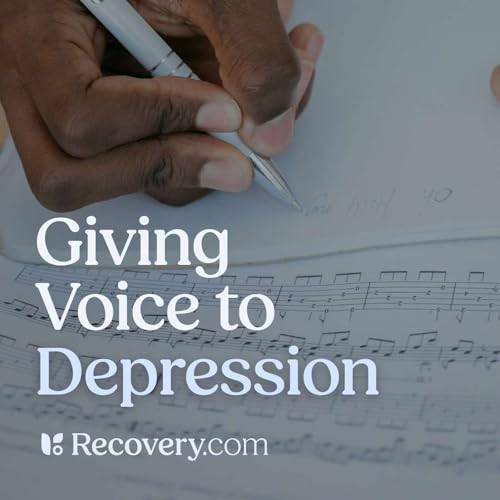In this inspiring episode of Giving Voice to Depression, wellness expert and author Darin Olien — co-host of Netflix’s Down to Earth with Zac Efron — opens up about his personal experiences with depression and shares how physical and mental health are deeply connected.
Olien, known for his best-selling books SuperLife and Fatal Conveniences, discusses how diet, hydration, sleep, trauma, and emotional awareness play crucial roles in improving mental health. He shares candid reflections on grief, loss, and rebuilding his life after his Malibu home burned down — revealing how embracing vulnerability and self-compassion became essential parts of his healing journey.
Together with hosts Terry McGuire and Dr. Anita Sanz, Darin explores how we can take small, realistic steps to strengthen mental resilience, nurture our bodies, and reclaim hope.
Whether you’re struggling with depression, supporting a loved one, or simply looking for practical ways to take better care of your mind and body, this conversation offers real-world tools and the reminder that you don’t have to walk this road alone.
💬 Primary Topics Covered
- The powerful link between physical and mental health
- Personal experiences with depression and loss
- The role of nutrition, hydration, and sleep in mood regulation
- Understanding trauma, grief, and emotional healing
- Practical wellness tools for depression and anxiety
- How to recognize when to seek professional help
- The value of community, empathy, and therapy
- Why it takes courage to feel and process emotions
- Building resilience and redefining hope after major life changes
⏱ Timestamps
00:00 – Introduction: Welcome and episode overview
01:20 – Meet Darin Olien: Author, wellness expert, and mental health advocate
03:38 – Darin shares his family’s experience with depression
05:42 – “When your body is depressed, your mind follows”: the biology of depression
06:12 – Losing everything in the California wildfires — grief and renewal
07:35 – The courage it takes to process pain and let go
08:41 – How ultra-processed foods affect mood and mental clarity
09:31 – Trauma, stress, and their long-term impact on mental health
11:13 – Why community, therapy, and medication all matter
12:27 – The importance of radical self-honesty and emotional safety
13:17 – The power of empathy and active listening
13:50 – Breaking stigma: why therapy isn’t weakness, it’s wisdom
15:19 – Self-forgiveness and letting go of pain that isn’t yours
16:36 – Understanding control: sleep, nutrition, and body rhythms
18:07 – How diet and hydration influence mental health
19:49 – “Get help. This is your life.” — Darin’s call to action
20:54 – Permission to dream: finding purpose after depression
22:00 – Dr. Sanz on what you can control — nutrition, sleep, activity, stress
24:47 – How genetics account for 20% — and your choices for 80% — of outcomes
25:51 – Closing reflections: hope, control, and compassion
Explore mental health and addiction treatment options at recovery.com
Facebook Community: https://www.facebook.com/GivingVoiceToDepression/
Terry's LinkedIn: https://www.linkedin.com/in/givingvoicetodepression/
 18 m
18 m 19 m
19 m Jan 20 202627 m
Jan 20 202627 m
 20 m
20 m Dec 30 202520 m
Dec 30 202520 m 8 m
8 m Dec 16 202519 m
Dec 16 202519 m
